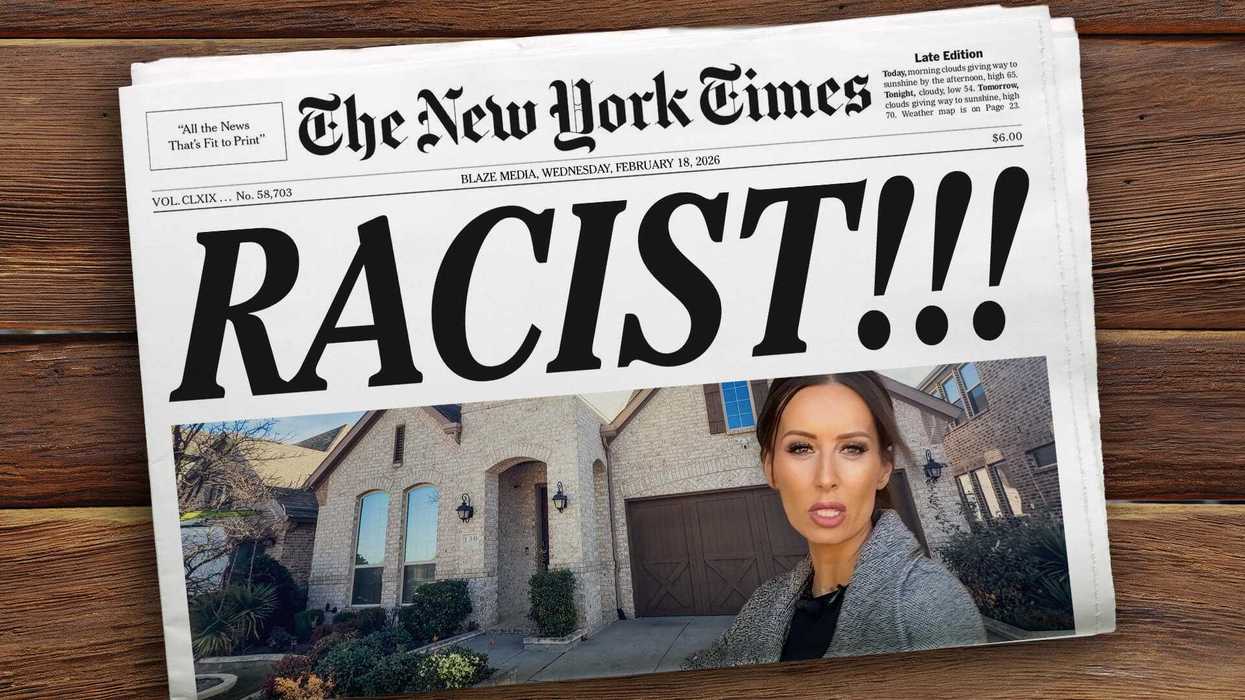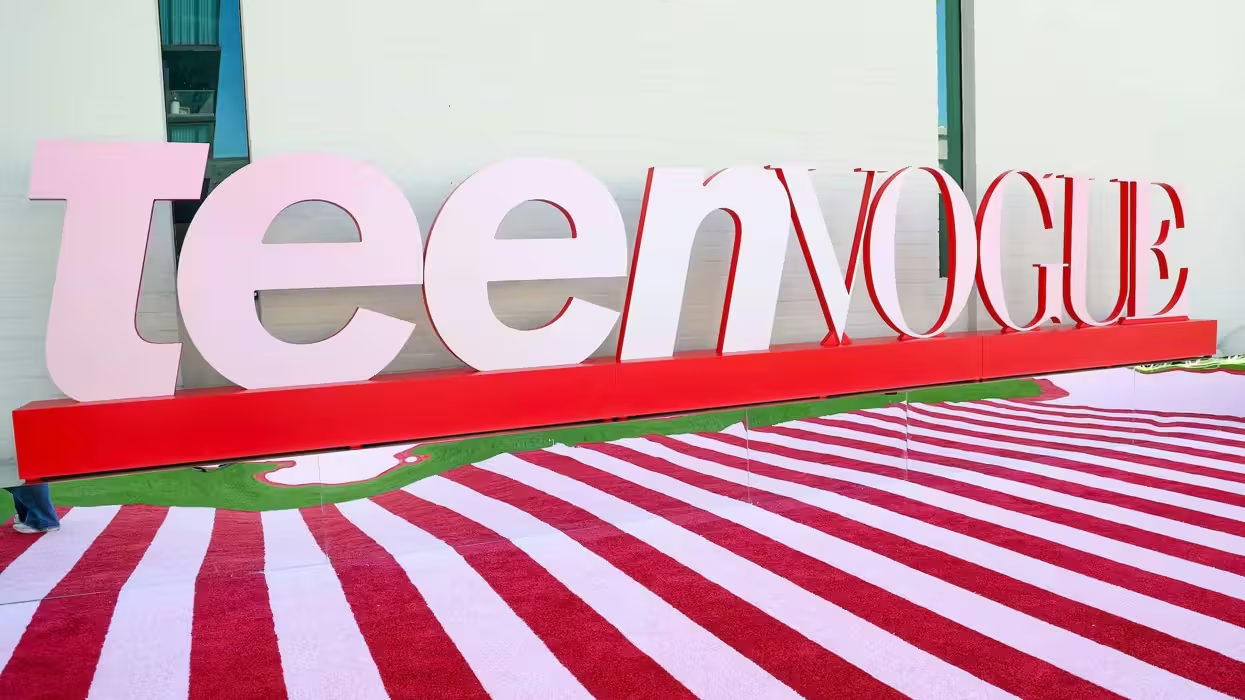
© 2026 Blaze Media LLC. All rights reserved.
Could Government, Law Enforcement Turn Your Store Loyalty Card Data Against You?
October 18, 2012
"...target communities with whom they disagree with their purchasing choices."

Loyalty cards from a variety of sources. (Image: Wikimedia)
Open your wallet and take out your keychain. How many grocery or retail store loyalty cards do you have? It seems nearly every cashier is asking these days for a card as they ring you up. The cards come with consumer incentives, but how else is the information you provide about yourself and your purchase history being used?
How about leading to your arrest? (It's happened). Or being used in an employment check? (Consumer rights groups think it's conceivable).
Or even being used by the government to crack down on communities they believe should be making healthier choices? Although this might be considered a bit of an Orwellian viewpoint, it is something Money Crashers.com founder Andrew Schrage said he could see happening, given recent government activities like New York City's mayor banning sugary drinks above a certain size and Michelle Obama's new guidelines that limit calories in school lunches.
"I can absolutely see them using this information to target communities with whom they disagree with their purchasing choices," Schrage said.
The advocacy group Privacy Rights also sees room in the future for non-marking uses of your information from these types of cards, such as government surveillance, employment background checks, law enforcement investigations and insurance company research.
But this could already be happening to an extent already.
What Do These Cards Collect?
First, consider the information inside these databases. The primary information collected when signing up for one of these cards is your name, birthday, address and telephone number. Depending on the card and the services provided, like if you got checks cashed, some could go as far to require social security number, checking account number and/or driver's license number.
Once you've used your card during purchases, it begins making a history of what you've bought. Lisa Marie Walls, a vice president and digital strategist for the Philadelphia-based advertising agency Tierney, which is helping a high-end grocery store in New Jersey set up a more advanced loyalty card program, told TheBlaze the store will be collecting information about how the customer paid for purchases as well.

This image shows a "Bonus Card" for Giant Food Stores. (Image: Giant)
How Your Information Could Be Used Against You
Where things get interesting is just how stores use this information.
Although use of contact information might be welcome when it results in supposed savings, other uses could raise eyebrows. Some stores state they may be required to provide law enforcement with your information. Schrage described a case where the a Safeway store once provided customer information to police in an arson investigation. It led them to the wrong person.

(Image: Safeway screenshot)
Privacy Rights has this and more examples of how customer information has been obtained by authorities:
[...] in a Washington state case a few years ago, a suspected arsonist was arrested after police tracked down a fire-starter unit with a Safeway label attached. Safeway provided police with his purchase history. The charges were later dropped, but the point is that the store gave access to the customer’s personal information to authorities.And in another case, the U.S. Drug Enforcement Agency subpoenaed records from the customer database of a supermarket chain in the Southwest looking to see if certain individuals had purchased large quantities of plastic bags commonly used in drug transactions. (Robert O’Harrow, “Bargains at a Price: Shoppers’ Privacy,” Washington Post, Dec. 31, 1998, p. A-1.)
The Electronic Privacy Information Center too has voiced its concerns about profiling occurring through cards like these. It included an example of a California store that tried to use its loyalty card records in a court case involving a customer who slipped and was injured in the store. Von's Supermarket believed the customer was under the influence of alcohol at the time and wanted to use its purchase data to support this claim. This evidence was ultimately never used in court.
In July of this year, it was also revealed that the British government was discussing with supermarkets how data collected by loyalty cards could be used to "nudge" consumers toward healthier purchasing habits. It is unclear whether supermarkets would comply with the idea.
How Your Information Could Be Used to Help You
It's, of course, not all bad though. At its most basic level, stores track what you buy in order to learn trends of purchases so they can stock what you buy most. They also use it to target customers with more specific ads, specials and messaging through in-store coupons, mailers and on the Web.
Schrage, who has been featured recently by many as a successful, young entrepreneur for the growth of his website, told TheBlaze grocers often use purchase tracking to inform customers of recalls. He points out the Center for Disease Control and Prevention has used information from loyalty cards to contact customers who purchased contaminated products in recent years as well.
Another benefit to customer cards is if you lose your keys. Stores are often able locate you, if your card is kept on a keychain, thanks to their database with your contact information, Schrage said.
Some coupon cards, like that Walls is working to help a store implement, are going beyond helping customers achieve a lower price and looking more at enhancing the overall experience. She not only said that they're looking into things like using a smartphone and GPS to alert the customers to specials based on where they are in the store but also to information like a fresh batch of salmon that was recently brought in or an organic granola pairing to go with the organic yogurt you're near.
"Today, people want something of value beyond coupons," Walls said. "People want great recommendations. They want inspiration."
What Can You Do
Although customers might be surprised to learn loyalty cards aren't just to provide them savings and for a store's marketing purposes, privacy policies do include more specific information for how data is collected and used. Schrage said most people just don't read these policies. A similar sentiment is seen on the Web when people sign up for services like social media and later are surprised when their information is used in ways they didn't expect.
"If a consumer is concerned about how their personal information is being used, then they need to take the time to read the privacy policies," Schrage said. "A grocer is required to explain their actions in such policies. Having said that, there is a key loophole that many grocers take advantage of: They list in their privacy policy that they don’t share your information with third parties, leading the consumer to think that their information is secure. However, once a grocer partners with another company, they can legally share that information without violating the policy."
Most stores have their privacy policy printed in a pamphlet, but they're also often available on corporate websites. Some stores also allow customers to request their personal data not be disclosed.
If you're not comfortable with how your information could be used, you might avoid signing up for loyalty cards altogether. Schrage said the net savings of these cards is "debatable" anyway.
"There are times when a grocer will pad the price of a certain item and then offer a discount on it to loyalty customers, making the net savings negligible. Some experts claim you can get your groceries for just as cheap solely through the use of coupons in the Sunday paper," he said.
TheBlaze contacted grocery stores like Giant Food Stores and Kroger, both of which have cards described in this article. Neither returned our calls for information regarding their programs.
Want to leave a tip?
We answer to you. Help keep our content free of advertisers and big tech censorship by leaving a tip today.
Want to join the conversation?
Already a subscriber?
more stories
Sign up for the Blaze newsletter
By signing up, you agree to our Privacy Policy and Terms of Use, and agree to receive content that may sometimes include advertisements. You may opt out at any time.
Related Content
© 2026 Blaze Media LLC. All rights reserved.
Get the stories that matter most delivered directly to your inbox.
By signing up, you agree to our Privacy Policy and Terms of Use, and agree to receive content that may sometimes include advertisements. You may opt out at any time.






